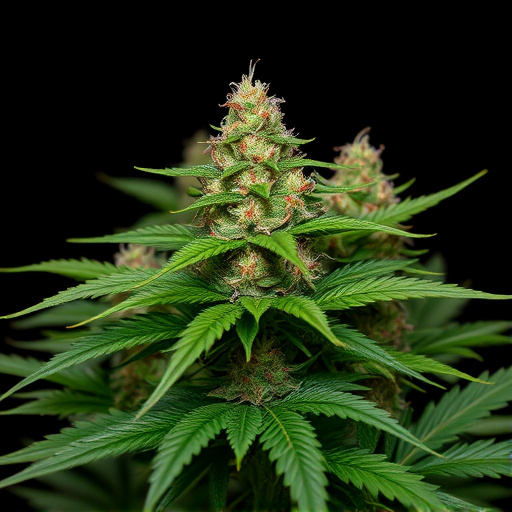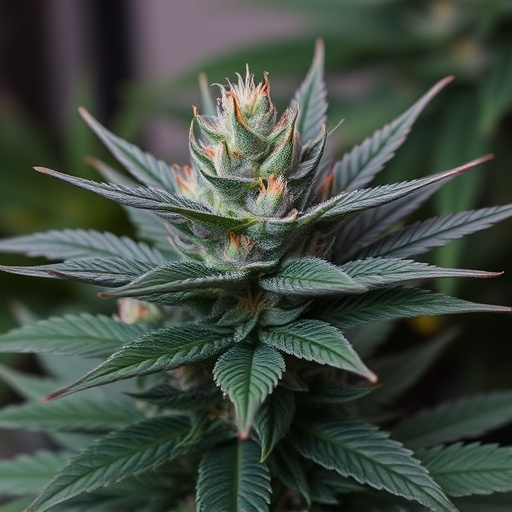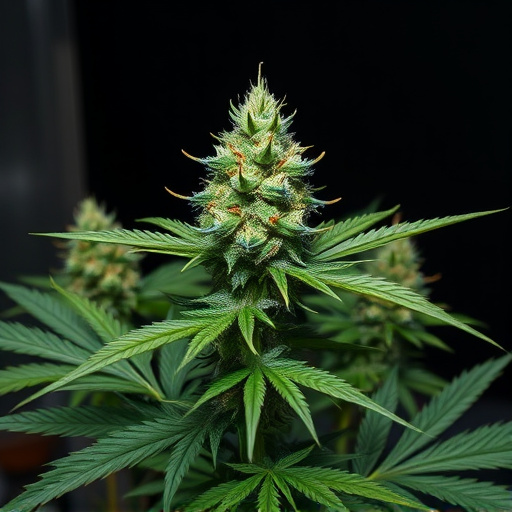Consuming cannabis, especially indica strains known for their relaxing effects, carries both immediate benefits like heightened sensory perception and relaxation, as well as long-term risks including dependence, respiratory issues, cognitive impairment, and mental health disorders. Individual reactions vary based on tolerance, dose, and biochemistry. Responsible consumption involves moderating intake, avoiding excessive smoking, choosing lower THC strains, and using alternative methods like vaporizers or edibles. Staying informed about local laws, understanding personal health conditions, and consulting healthcare professionals are essential for safe and personalized cannabis use, especially among young adults whose brains are still developing.
“Uncovering the complexities of weed usage, this article delves into the multifaceted impacts of both short-term and long-term consumption. From immediate effects like altered perception and relaxation to potential long-term risks associated with consistent indica cannabis strain use, we explore the ‘balancing act’ of responsible usage. Understanding these aspects is crucial for navigating the growing acceptance of cannabis, ensuring informed decisions, and promoting healthy habits.”
- Short-Term Effects of Weed: What to Expect Immediately After Consumption
- Long-Term Use: Potential Health Implications and Side Effects of Indica Cannabis Strains
- Balancing Act: Navigating the Risks and Benefits for Responsible Usage
Short-Term Effects of Weed: What to Expect Immediately After Consumption

The immediate effects of consuming weed, or cannabis, can vary greatly depending on factors like tolerance, dose, and individual biochemistry. Users may experience what’s commonly referred to as a “high,” characterized by heightened sensory perception and altered states of mind. This can include heightened creativity, relaxation, and euphoria, often described as a pleasant and enjoyable experience. Physical sensations might include dry mouth, red eyes, and increased appetite—a phenomenon famously known as the “munchies.”
For those who opt for indica cannabis strains, known for their relaxing and sedative properties, short-term effects may be more pronounced in terms of muscle relaxation and a sense of calm. This can make it appealing for managing immediate stress or pain relief. However, users should be aware that these sensations might also lead to drowsiness or fatigue, impacting coordination and judgment, which is why it’s crucial to consume responsibly and in a safe environment.
Long-Term Use: Potential Health Implications and Side Effects of Indica Cannabis Strains

Long-term use of indica cannabis strains can lead to various health implications and side effects. Regular consumption may result in dependence, with symptoms ranging from mild withdrawal to more severe anxiety and insomnia upon cessation. Over time, it can also contribute to respiratory issues due to the inhalation of smoke or vapor, even if using vaporizers. Some studies suggest that chronic use might impact cognitive functions, particularly memory and attention spans. Additionally, there is growing evidence linking long-term cannabis use to mental health disorders, such as schizophrenia, especially in individuals predisposed to these conditions.
Indica strains are known for their relaxing and sedative effects, but this can also lead to a decrease in motivation and energy levels, impacting daily routines and productivity. Other potential side effects include increased appetite, which may contribute to weight gain, and cardiovascular issues like elevated heart rate. It’s important to remember that individual reactions vary, and factors like dosage, frequency of use, and personal tolerance play significant roles in determining the extent of these effects.
Balancing Act: Navigating the Risks and Benefits for Responsible Usage

Navigating the risks and benefits of weed usage is a delicate balancing act, especially for those considering responsible consumption. While there’s growing acceptance of cannabis, understanding its complexities is vital. Indica cannabis strains, known for their relaxing effects, might offer relief from stress and insomnia, making them appealing to many. However, long-term use can lead to potential health risks, including respiratory issues due to smoke inhalation and cognitive impairment, particularly in young adults whose brains are still developing.
Responsible usage involves moderating intake, avoiding excessive smoking, and choosing strains with lower levels of THC, the primary psychoactive compound. Additionally, opting for alternative consumption methods like vaporizers or edibles can reduce exposure to harmful toxins present in smoke. Always stay informed about local laws and regulations, and consult healthcare professionals for personalized advice, especially if you have pre-existing health conditions.
Understanding the short- and long-term effects of weed, particularly the potential risks associated with consistent use of indica cannabis strains, is essential for navigating its consumption responsibly. While occasional usage may pose minimal issues, sustained exposure to its active compounds can lead to various health implications. By recognizing both immediate and lasting impacts, users can make informed decisions, ensuring a balance between enjoying the benefits of cannabis and safeguarding their well-being.














